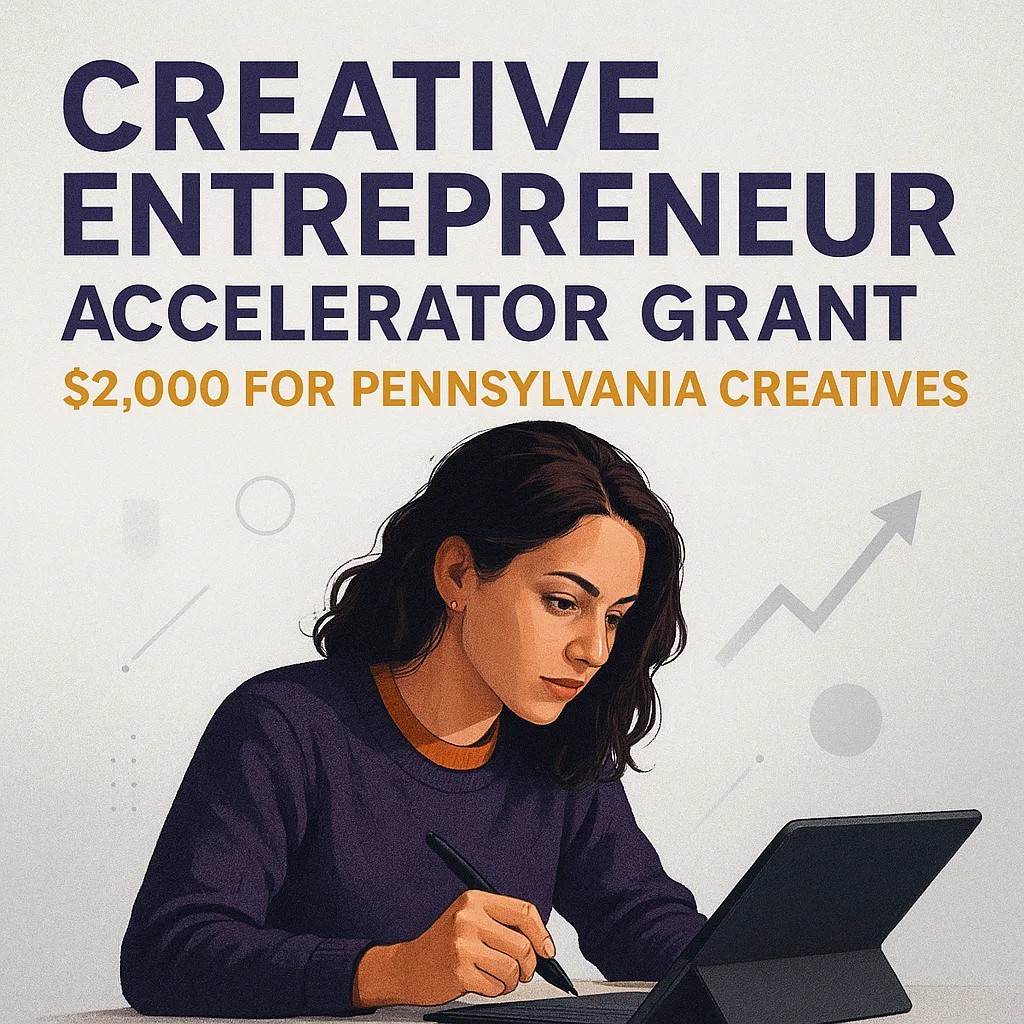
Pipeline Angels Pitch Summit 2025: Revolutionary Angel Investment Program Training 500+ Impact Investors
Pipeline Angels trains 500+ invest angels to fund underrepresented founders. Apply for October 2025 summit. $25K-$50K investment potential.
Grant Overview
Where Social Impact Founders Connect with Trained Angel Investors Ready to Invest $25,000-$50,000 in Your Mission-Driven Business
You know that sick feeling when you watch another generic pitch event where founders get three minutes to convince skeptical investors who’ve already made up their minds? Pipeline Angels throws that whole playbook out the window. This isn’t about convincing angels to invest angel capital in your startup – it’s about connecting with a carefully trained cohort who actually want to fund businesses like yours.
The numbers tell the real story here. According to the Angel Capital Association, today 40% of all angel capitalists in the U.S. are now women, up from 5% in 2013. Recent estimates suggest that U.S. angel investment activity is about $24 billion a year, contributing to the growth of about 70,000 startups each year nationwide. But here’s what those statistics don’t capture – most of that capital still flows through the same networks, funding the same types of founders.

Pipeline Angels breaks this pattern by specifically training their angel cohort to recognize opportunities that traditional venture capital overlooks. When you apply to their October 2025 Pitch Summit, you’re not just seeking investment. You’re accessing a network that understands the unique challenges facing women entrepreneurs and has been specifically educated to invest angel funding in underrepresented founders.
How the Angel Investment Actually Works
Let’s cut through the marketing speak and talk numbers. Each Pipeline Angels member commits a minimum $5,000 investment, and cohorts typically include 5-10 angels per session. Do the math – you’re looking at potential funding between $25,000 and $50,000 from the core cohort alone.
But wait, there’s more (and this isn’t a late-night infomercial pitch). If the angels-in-training like what they see, you’ll get a second shot at their broader network of 500+ trained investors. That’s where things get interesting for founders who can execute on their vision.
Q: What’s the typical check size for angel investment through Pipeline Angels?
A: $5,000 minimum per angel, with 5-10 angels per cohort.
Q: How long does the investment process take?
A: Funding expected by late December 2025 or early January 2026.
The timeline isn’t theoretical either. Unlike those angel networks where founders pitch and then wait six months for a maybe, Pipeline Angels operates on an accelerated schedule. Applications close before October, summits happen October 18-19, and successful founders can expect to see investment dollars by year-end.
The Training Makes All the Difference
Here’s something most founders don’t realize about angel investment networks: the quality of training that angels receive directly impacts their investment decisions. Pipeline Angels doesn’t just recruit wealthy individuals and hope for the best. They run an intensive education program that teaches their angels how to evaluate social impact businesses, understand diverse market opportunities, and recognize sustainable competitive advantages.
This training approach matters because it means you’re pitching to investors who’ve been specifically prepared to understand your business model, not investors who might dismiss social impact as “nice to have” rather than a core competitive advantage.
The underrepresented founder community benefits enormously from this approach because Pipeline Angels angels learn to evaluate businesses based on market potential and execution capability rather than relying on pattern recognition from previous deals that may have excluded diverse founders.
What Sets This Apart from Traditional Angel Investment
Most angel investment opportunities follow predictable patterns. Founders present their hockey stick growth projections, angels ask about customer acquisition costs and exit strategies, and investment decisions get made based on metrics that often favor founders who already have access to established networks and resources.
Pipeline Angels deliberately disrupts this pattern. Their angels are trained to recognize that businesses solving problems for underserved communities often have stronger customer loyalty, clearer value propositions, and more defensible market positions than purely profit-maximizing ventures.
Q: Do I need a tech startup to attract angel investment?
A: No. Social and environmental missions are actually preferred.
Q: What if my business isn’t generating revenue yet?
A: Pre-revenue companies can qualify if they demonstrate clear market understanding and viable business models.
The geographic flexibility adds another layer of accessibility. While traditional angel investment often requires founders to relocate to major metropolitan areas, Pipeline Angels’ virtual format means you can access their network from anywhere in the United States. This removes barriers that have historically limited angel investment access to founders in expensive coastal markets.
The Due Diligence Reality Check
Due diligence in traditional angel investment can feel like a colonoscopy – invasive, uncomfortable, and designed to find problems. Pipeline Angels structures their due diligence as collaborative education, where angels-in-training learn to evaluate investments while founders get constructive feedback on their business models.
This creates a fundamentally different dynamic. Instead of defending your projections against skeptical investors, you’re engaging with angels who want to understand how your business creates both financial returns and measurable social impact.
The structured format (10-minute pitch plus 15-minute Q&A) allows for substantive discussions about growth strategies and market opportunities rather than surface-level presentations that don’t give investors enough information to make informed decisions.
The Real Selection Criteria Nobody Talks About
Pipeline Angels won’t tell you this directly, but their selection process prioritizes founders who demonstrate deep understanding of their target markets over those with impressive credentials but shallow market knowledge. They’re looking for entrepreneurs who’ve identified genuine problems and can articulate specific solutions that create value for customers who’ve been ignored by existing businesses.
Q: What should I emphasize in my application?
A: Your unique market insights and how you’re solving problems others have missed.
Q: How important are my financial projections?
A: Important, but market understanding and execution capability matter more.
Q: Should I focus on social impact or profitability?
A: Show how they reinforce each other rather than treating them as competing priorities.
The mandatory Founder Information Session serves as the first filter. It’s not just attendance that matters – it’s engagement. Pipeline Angels uses these sessions to identify founders who understand their mission and can contribute to their community-building approach to angel investment.
Many applicants make the mistake of treating this like a typical venture capital application. Pipeline Angels angels have been specifically trained to value sustainable business models, inclusive growth strategies, and long-term impact over rapid scaling and quick exits that characterize much of traditional angel investment.
Understanding the Investment Instruments
Pipeline Angels typically uses SAFE (Simple Agreement for Future Equity) or convertible debt instruments rather than direct equity investments. This approach benefits founders because it delays valuation discussions until later funding rounds when companies have more leverage to negotiate favorable terms.
The direct cap table approach means you’re dealing with individual angels rather than a fund structure, which can simplify decision-making and create more personal relationships with your investors. However, this also means managing multiple investor relationships rather than a single institutional contact.
Q: What equity percentage should I expect to give up?
A: Depends on your valuation and the investment instrument, but typically less than traditional Series A rounds.
Angels who complete Pipeline Angels training often become long-term supporters of their portfolio companies, providing ongoing mentorship and connections that extend well beyond the initial investment. This relationship-focused approach distinguishes Pipeline Angels from transactional angel investment platforms.
Market Context and Competition
The global angel investment market size was valued at USD 27.83 billion in 2024, with a projected growth to USD 72.35 billion by 2033 at a CAGR of 11.3%. But growth in market size doesn’t automatically translate to increased access for underrepresented founders.
According to a recent study by PitchBook, female-founded companies received only 2% of the total venture capital (VC) funding in 2023 throughout the United States and Europe. This disparity creates the opportunity that Pipeline Angels specifically addresses – a massive gap between available capital and accessible capital for founders who don’t fit traditional investor patterns.
The Pipeline Angels model works because it addresses both sides of this equation. They train angels to recognize value in diverse founders while providing founders with access to investors who’ve been specifically educated about the opportunities that mainstream angel investment often misses.
Success Stories and Portfolio Insights
Pipeline Angels has a track record of funding companies that go on to raise subsequent rounds from larger investors. This progression demonstrates that their selection and training process identifies genuinely viable businesses rather than just supporting social causes without commercial potential.
The network effect becomes particularly valuable as companies scale. Founders who’ve received Pipeline Angels investment often find that their association with the network opens doors to additional funding sources, strategic partnerships, and market opportunities that wouldn’t have been available otherwise.
Q: What happens if I don’t get selected for investment?
A: You still gain exposure to the Pipeline Angels network and receive feedback from trained investors.
Q: Can Pipeline Angels invest in pre-revenue companies?
A: Yes, especially if you can demonstrate clear market validation and viable path to profitability.
The virtual format also creates opportunities for follow-up discussions that might not happen in traditional in-person events where logistics limit relationship-building opportunities.
Application Strategy That Actually Works
The Pipeline Angels application requires more strategic thinking than most angel investment applications because you’re not just demonstrating financial viability – you’re showing how your business creates positive change while generating returns that satisfy angel investment criteria.
Your application should emphasize your unique insights into underserved markets, your team’s ability to execute on your vision, and specific ways your business model creates value for customers who’ve been ignored by existing solutions. Social impact businesses often have clearer value propositions because they solve real problems for specific communities.
The Founder Information Session attendance requirement isn’t negotiable. This session provides crucial information about Pipeline Angels’ investment philosophy and gives you insights into what their angels are actually looking for in portfolio companies.
Common Mistakes That Kill Applications
Treating Pipeline Angels like traditional venture capital is the fastest way to get rejected. Their angels have been specifically trained to evaluate businesses differently, and your application should reflect understanding of their investment approach.
Don’t minimize your social impact to appear more commercially focused. Pipeline Angels angels understand that social impact often translates to sustainable competitive advantages, stronger customer relationships, and more defensible market positions.
Q: Should I mention competitors in my application?
A: Yes, but focus on how you serve markets they ignore rather than how you’ll beat them.
Q: How technical should my financial projections be?
A: Detailed enough to show you understand your business model, but focus on assumptions rather than precision.
Avoid the temptation to oversell your traction if you’re early-stage. Pipeline Angels angels are trained to recognize potential in pre-revenue companies that demonstrate clear market understanding and viable business models.
The Bigger Picture: Why This Matters
Pipeline Angels represents something larger than just another angel investment opportunity. They’re systematically training investors to recognize value in businesses that traditional angel networks miss, creating new pathways for founders who’ve been excluded from conventional funding sources.
On average, angel groups invested a total of $5.3 million per group, an increase of 15% from 2020. The total amount invested in 2021 represents the highest total since we began tracking this data. But most of this growth has benefited the same types of founders who already had access to angel investment networks.
The Pipeline Angels training model creates genuinely new capital sources rather than just redirecting existing investment flows. This expansion of the investable universe benefits the entire startup ecosystem by increasing competition, innovation, and market coverage.
Timeline and Next Steps
October 18 (Global East) and October 19 (Global West) aren’t just dates on a calendar – they represent specific opportunities to access an angel investment network that operates differently from traditional platforms.
The application deadline approaches faster than most founders expect, and the required Founder Information Session adds another layer of timing considerations. Start your application process now if you’re serious about accessing this invest angel opportunity.
But let’s be practical here. Preparing an application that stands out to trained angel investors who’ve specifically learned to evaluate social impact businesses requires serious strategic thinking about how you position your company, your market opportunity, and your social impact metrics.
If you want to maximize your chances of securing angel investment through Pipeline Angels and need expert guidance on crafting an application that resonates with impact-focused investors, that’s exactly what we help founders accomplish at Grantaura. Our specialized support for investment applications has helped hundreds of entrepreneurs access funding they might not have found otherwise.
Donor: Pipeline Angels (Institute for Entrepreneurial Leadership)
Focus: angel investment, impact investing, women founders, social entrepreneurship, startup funding, underrepresented entrepreneurs, angel capital, venture funding
Region: United States
Eligibility:
– For-profit legal structure in U.S. state required
– Duly organized and validly existing company status
– Social and/or environmental mission strongly encouraged
– Women and non-binary founders strongly encouraged
– Mandatory Founder Information Session attendance
– Available for virtual October 2025 pitch summit participation
Benefits:
– Angel Investment: $25,000-$50,000 from trained investor cohort
– Network Access: Exposure to 500+ Pipeline Angels member community
– Syndicate Opportunities: Additional investment potential from broader network
– Fast Timeline: Investment decisions by December 2025/January 2026
– Ongoing Support: Long-term relationships with impact-focused investors
Deadline: Applications due before October 18-19, 2025 Pitch Summit
Terms:
– Pipeline Angels: Revolutionary angel investment network that trains 500+ investors to fund underrepresented founders, focusing on social impact businesses often overlooked by traditional venture capital.
– Invest Angel (Or Angel Investor): Individual who provides capital to early-stage companies in exchange for equity, typically investing $5,000-$50,000 per deal and offering mentorship alongside funding.
– SAFE (Simple Agreement for Future Equity): Investment instrument that delays valuation discussions until future funding rounds, giving founders more leverage to negotiate favorable terms later.
– Angels-in-Training: Pipeline Angels’ unique model where new investors complete intensive education before making investment decisions, ensuring they understand diverse founder challenges.
– Impact Investing: Investment approach that seeks both financial returns and measurable positive social or environmental impact, which Pipeline Angels specifically prioritizes over pure profit maximization.
– Investment Syndicate: When multiple Pipeline Angels members pool resources to invest larger amounts, potentially expanding your $25,000-$50,000 initial funding significantly through network effects.
– Cap Table: Your company’s ownership structure where Pipeline Angels members sign directly as individual investors rather than through a fund entity, creating personal relationships.
– Convertible Debt: Alternative investment instrument to SAFE that converts to equity at predetermined triggers, commonly used by Pipeline Angels for early-stage funding.
– Due Diligence: Collaborative evaluation process where angels assess your business model, market opportunity, and team capability rather than interrogating financial projections like traditional VCs.
– Accredited Investor: Legally defined investor with income or net worth requirements that Pipeline Angels members must meet to participate in angel investment activities.
– Gender Lens Investing: Investment strategy that considers gender-based factors in decision-making, which Pipeline Angels uses to identify underserved market opportunities.
– Pitch Summit: Virtual presentation event where founders deliver 10-minute pitches followed by 15-minute Q&A sessions to trained angel investors ready to commit capital.
– Pre-Money Valuation: Your company’s worth before receiving angel investment, which affects how much equity you’ll give up for the funding amount received.
– Social Venture: For-profit business with explicit social or environmental mission that creates measurable positive impact while generating financial returns for investors.
– Lead Investor: The angel who coordinates the investment round and often negotiates terms on behalf of other participating investors in your funding deal.
– Portfolio Company: Your status after receiving Pipeline Angels investment, gaining access to ongoing network support and potential follow-on funding opportunities from 500+ members.
– Underrepresented Founders: Entrepreneurs from historically excluded populations in venture capital, including women, non-binary, and minority founders whom Pipeline Angels specifically supports.
– Angel Capital: Early-stage funding provided by individual investors rather than institutional venture capital firms, typically ranging from $10,000 to $100,000 per investment.
– Virtual Pitch Event: Online presentation format that eliminates geographical barriers and reduces costs for founders seeking angel investment from Pipeline Angels network.
– IFEL (Institute for Entrepreneurial Leadership): Parent organization of Pipeline Angels that acquired the network in July 2023 and provides operational support for angel training programs.
Author: The angel investment world has always frustrated me because it talks about supporting innovation while funding the same types of founders over and over. Through my work at Grantaura, I’ve seen brilliant entrepreneurs with game-changing ideas get shut out of angel networks simply because they don’t fit traditional patterns. Pipeline Angels actually does something about this problem by training their investors to recognize value where others see risk. That’s not just good for individual founders – it’s good for the entire startup ecosystem because it means more problems get solved and more communities get served by entrepreneurial innovation.
Don’t Miss Your Next
Funding Opportunity
How to apply for this grant
We are your trusted grant application partners. You can navigate the entire grant application process with our expert guidance through this simple 5-step process.
Step 1: Application Form
Fill out the “Apply for this grant” form with your information and grant requirements.
Step 2: Eligibility Assessment
Our grant experts will assess your eligibility and notify you via email.
Step 3: Expert Consultation
A dedicated grant expert will be assigned to discuss next steps for your application.
Step 4: Application Submission
Our expert will help you complete and submit your application with all required materials.
Step 5: Final Decision
The grant committee will make their decision and notify successful applicants.













